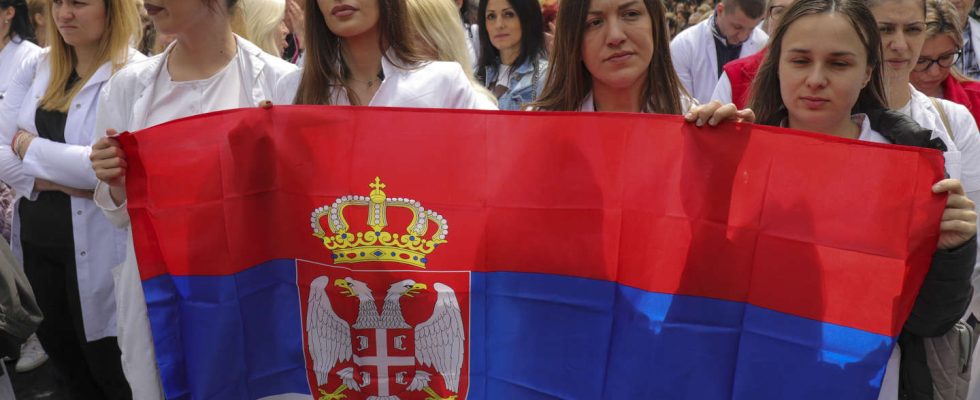The brief history of Kosovo, independent since 2008, has never known such tensions between Pristina and its Western sponsors. On Wednesday May 31, American, French and British leaders all blamed Prime Minister Albin Kurti for his role in the sudden rise in tensions observed in recent days in the north of this small Balkan country placed under the protection of the NATO since the war that opposed it to Serbia in 1999.
From Slovakia, where he participated in the Globsec Forum on Security in Europe, Emmanuel Macron estimated that, “very clearly, there is a responsibility of the Kosovar authorities in the current situation”. US Secretary of State Antony Blinken also criticized Pristina for having “suddenly and unnecessarily aggravated tensions” by deciding to install, Friday, May 26, Albanian mayors in four municipalities with a majority Serb population around the divided city of Mitrovica. The United States has even decided to cancel Kosovo’s participation in a defense exercise currently being conducted in Europe by NATO.
The enthronement of the four mayors, elected by a minority of Albanian speakers (1,500 voters out of 40,000 inhabitants) after the boycott of the elections by the Serbian community, has since Friday fueled the anger of the Serbs residing in the region. On Monday, they violently attacked the soldiers of KFOR, the name of the NATO force deployed there since the end of the war. Thirty Italian and Hungarian soldiers were injured in clashes. NATO has sent new troops there. On Wednesday, May 31, several hundred Kosovo Serbs demonstrated again, in a much calmer atmosphere, to demand the withdrawal of the Albanian-speaking mayors. “These protests are not against KFOR and NATO”assured Dragisa Milovic, the former Serbian mayor of Zvecan, the town which has concentrated the most clashes in recent days.
Refusal to back down
However, Albanian-speaking journalists again reported assaults and attacks on their vehicles. While this violence was clearly committed by Serbs under the influence of a government in Belgrade, close to Moscow, which still refuses to recognize the independence of its former region, the Western powers now attribute the source of the problems to Pristina. “We made it very clear to the Kosovo authorities that it was a mistake to proceed with these elections”, recalled Mr. Macron about the municipal elections organized on April 23 despite the boycott of the Serbian electorate. Serbian elected officials and civil servants in the region left all Kosovar institutions in November to protest Pristina’s decision to stop recognizing Serbian license plates.
You have 51.19% of this article left to read. The following is for subscribers only.

